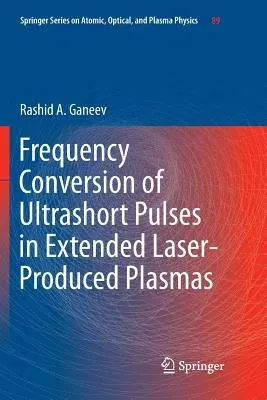This book offers a review of the use of extended ablation plasmas as
nonlinear media for HHG of high-order harmonic generation (HHG). The
book describes the different experimental approaches, shows the
advantages and limitations regarding HHG efficiency and discusses the
particular processes that take place at longer interaction lengths,
including propagation and quasi-phase matching effects. It describes the
most recent approaches to harmonic generation in the extreme ultraviolet
(XUV) range with the use of extended plasma plumes, and how these differ
from more commonly-used gas-jet sources. The main focus is on studies
using extended plasmas, but some new findings from HHG experiments in
narrow plasma plumes are also discussed. It also describes how
quasi-phase-matching in modulated plasmas, as demonstrated in recent
studies, has revealed different means of tuning enhanced harmonic groups
in the XUV region.
After an introduction to the fundamental theoretical and experimental
aspects of HHG, a review of the most important results of HHG in narrow
plasmas is presented, including recent studies of small-sized plasma
plumes as emitters of high-order harmonics. In Chapter 2, various
findings in the application of extended plasmas for harmonic generation
are analyzed. One of the most important applications of extended
plasmas, the quasi-phase-matching of generated harmonics, is
demonstrated in Chapter 3, including various approaches to the
modification of perforated plasma plumes. Chapter 4 depicts the
nonlinear optical features of extended plasmas produced on the surfaces
of different non-metal materials. Chapter 5 is dedicated to the analysis
of new opportunities for extended plasma induced HHG. The advantages of
the application of long plasma plumes for HHG, such as resonance
enhancement and double-pulse method, are discussed in Chapter 6.
Finally, a summary section brings together all of these findings and
discuss the perspectives of extended plasma formations for efficient HHG
and nonlinear optical plasma spectroscopy.
The book will be useful for students and scholars working in this highly
multidisciplinary domain involving material science, nonlinear optics
and laser spectroscopy. It brings the new researcher to the very
frontier of the physics of the interaction between laser and extended
plasma; for the expert it will serve as an essential guide and indicate
directions for future research.

